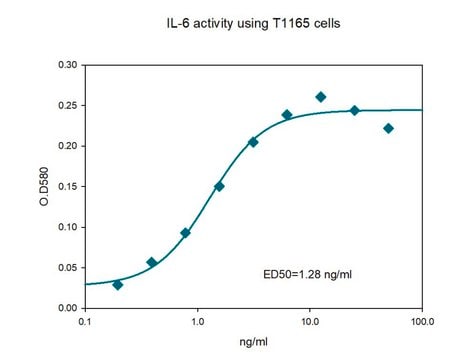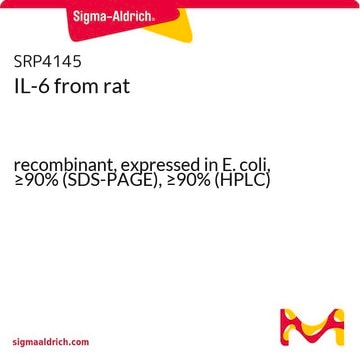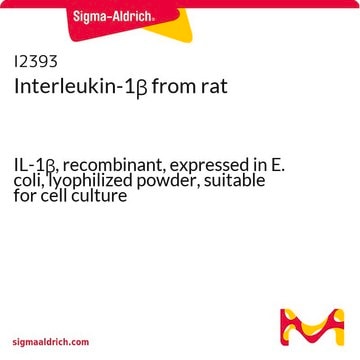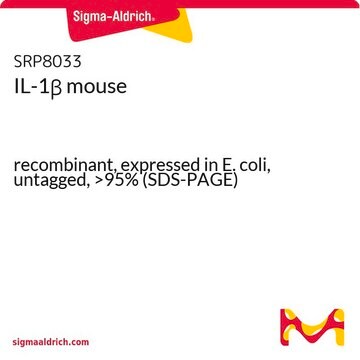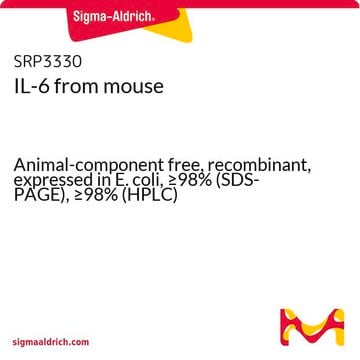I0406
Interleukin-6 from rat
IL-6, recombinant, expressed in E. coli, buffered aqueous solution, suitable for cell culture
Synonym(s):
Interleukin-6 from rat
About This Item
Recommended Products
biological source
rat
Quality Level
recombinant
expressed in E. coli
Assay
>97% (SDS-PAGE)
form
buffered aqueous solution
potency
0.01-0.06 ng/mL ED50
quality
endotoxin tested
mol wt
predicted mol wt ~22 kDa
packaging
pkg of 10 and 50 μg
technique(s)
cell culture | mammalian: suitable
impurities
<0.01EU/mg (LAL test)
UniProt accession no.
shipped in
dry ice
storage temp.
−70°C
Gene Information
rat ... Il6(24498)
Biochem/physiol Actions
Physical form
Preparation Note
Analysis Note
comparable product
Storage Class Code
12 - Non Combustible Liquids
WGK
WGK 2
Flash Point(F)
Not applicable
Flash Point(C)
Not applicable
Certificates of Analysis (COA)
Search for Certificates of Analysis (COA) by entering the products Lot/Batch Number. Lot and Batch Numbers can be found on a product’s label following the words ‘Lot’ or ‘Batch’.
Already Own This Product?
Find documentation for the products that you have recently purchased in the Document Library.
Customers Also Viewed
Our team of scientists has experience in all areas of research including Life Science, Material Science, Chemical Synthesis, Chromatography, Analytical and many others.
Contact Technical Service
